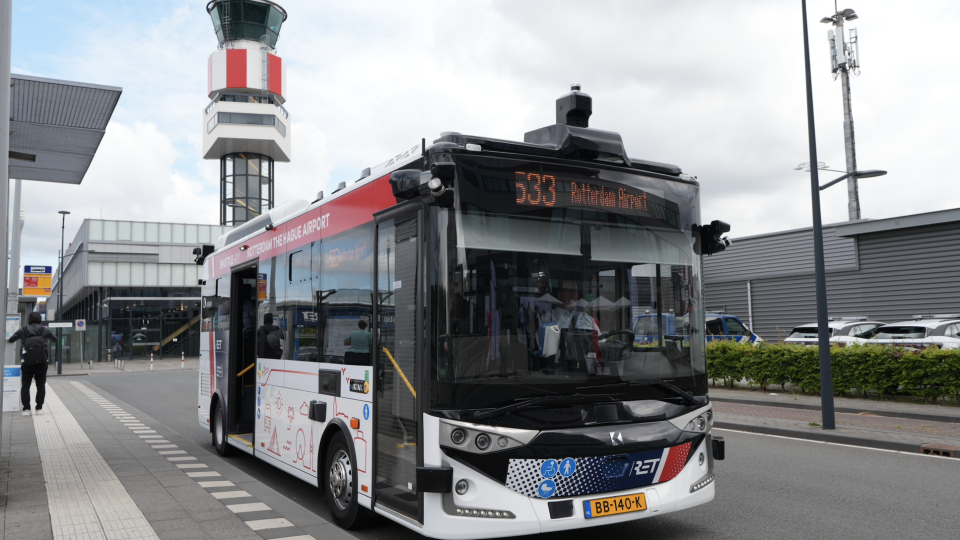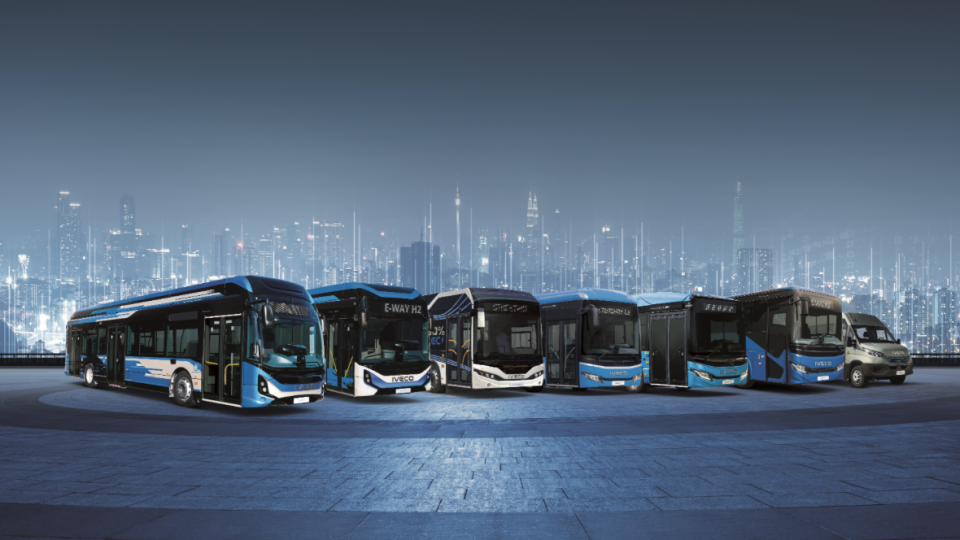8,500 e-buses will be operating in Germany in 2030, according to PwC forecast
1,884 buses with zero-emission and electrified drives were operating on Germany’s roads as of 31st December 2022: 620 more than in 2021, an increase of almost 50 percent. The milestone of 2,000 e-buses will thus soon be reached. However, they cover a share of just 3.5 percent. Between 2017 and 2021, the number of new […]
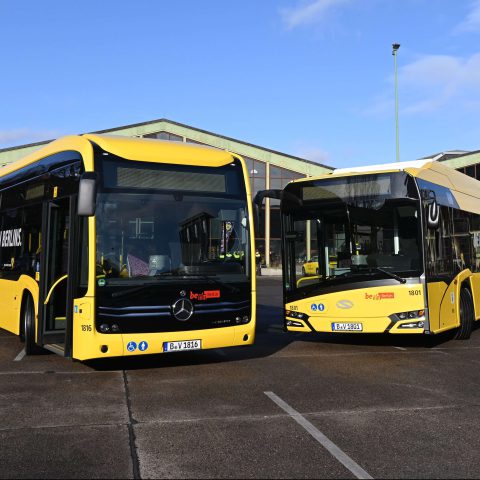
1,884 buses with zero-emission and electrified drives were operating on Germany’s roads as of 31st December 2022: 620 more than in 2021, an increase of almost 50 percent. The milestone of 2,000 e-buses will thus soon be reached. However, they cover a share of just 3.5 percent.
Between 2017 and 2021, the number of new electric buses buses purchased annually even grew exponentially: from 10 to 586 buses. In 2022, growth remained at a high level, even if the growth rate of 6 percent was no longer as strong as in previous years. The previous figures and considerations come from the sixth E-Bus Radar, compiled annually by the auditing and consulting firm PwC Germany. It offers a detailed picture of German electric bus market. It’s available HERE.
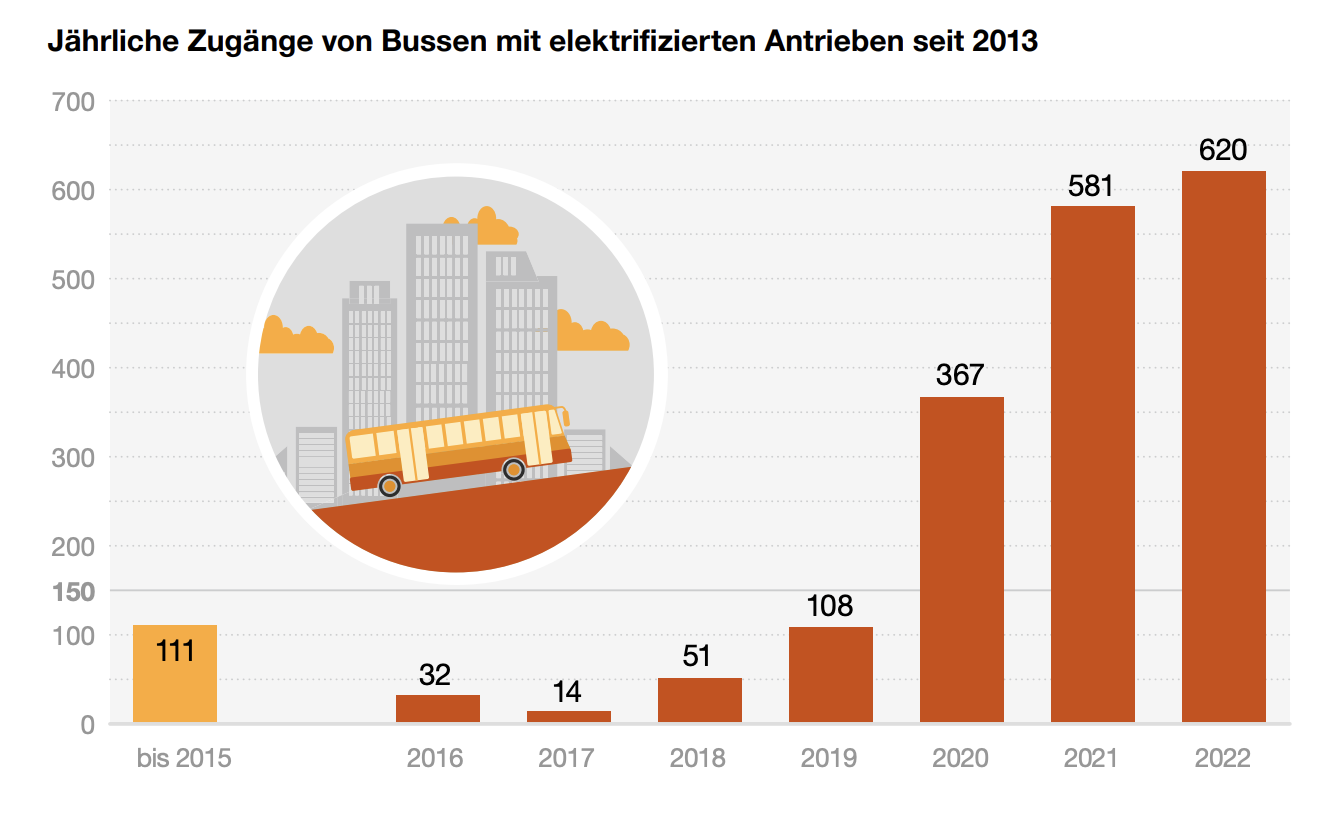
Figures are only very slighting differing from the ones provided by Chatrou CME Consulting, and this might be due to the fact that the latter focuses on battery-electric and fuel buses only while PwC takes into consideration the zero emission buses included in Clean Vehicles Directive definition (also plug-in hybrid and IMC trolleybuses then taken into account).
PwC: 8,500 e-buses on the road in 2030 in Germany
By 2030, plans are already known for 6,600 more e-buses, which would mean that around 8,500 e-buses would then be in use, PwC forecasts. Berlin and Hamburg are planning particularly extensive purchases. In Hamburg, Verkehrsbetriebe Hamburg-Holstein (VHH) announced only a few days ago that it had ordered 350 E-buses – the largest tender in the history of VHH. BVG in Berlin plans to convert its entire bus fleet to zero-emission drives by 2030.
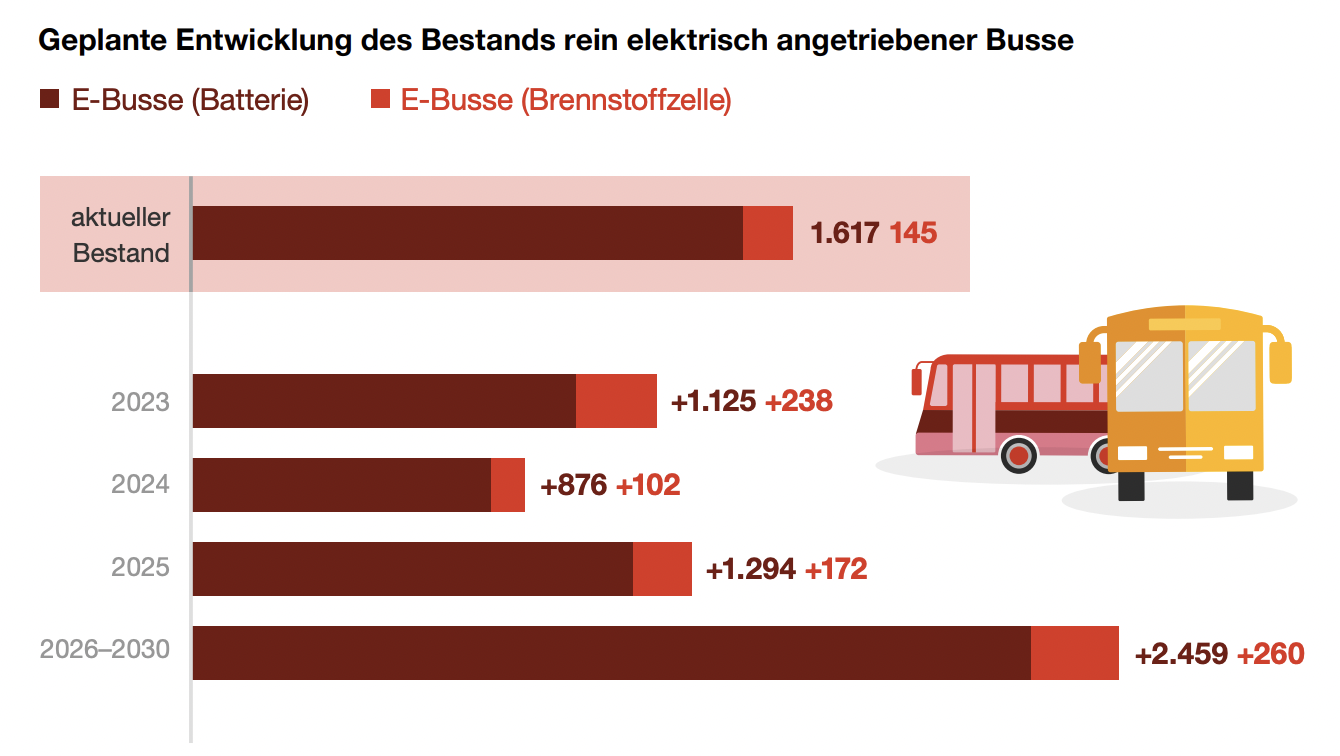
The status of electric bus market in Germany
What is striking here is the clear west-east divide: with the exception of Berlin, e-buses have so far been used to a greater extent in the federal states in the west of Germany, PwC underlines.
About every second bus (912 out of 1,884) with electrified propulsion is in operation in the top three states of North Rhine-Westphalia (382), Hesse (292) or Hamburg (228).
The three cities with the most e-buses (battery and fuel cell drive) were – as in 2021 – Hamburg, Berlin and Cologne (225, 149 and 133 vehicles respectively). New in the top-20 ranking are Nuremberg, Hanover and the district of Ludwigslust-Parchim.
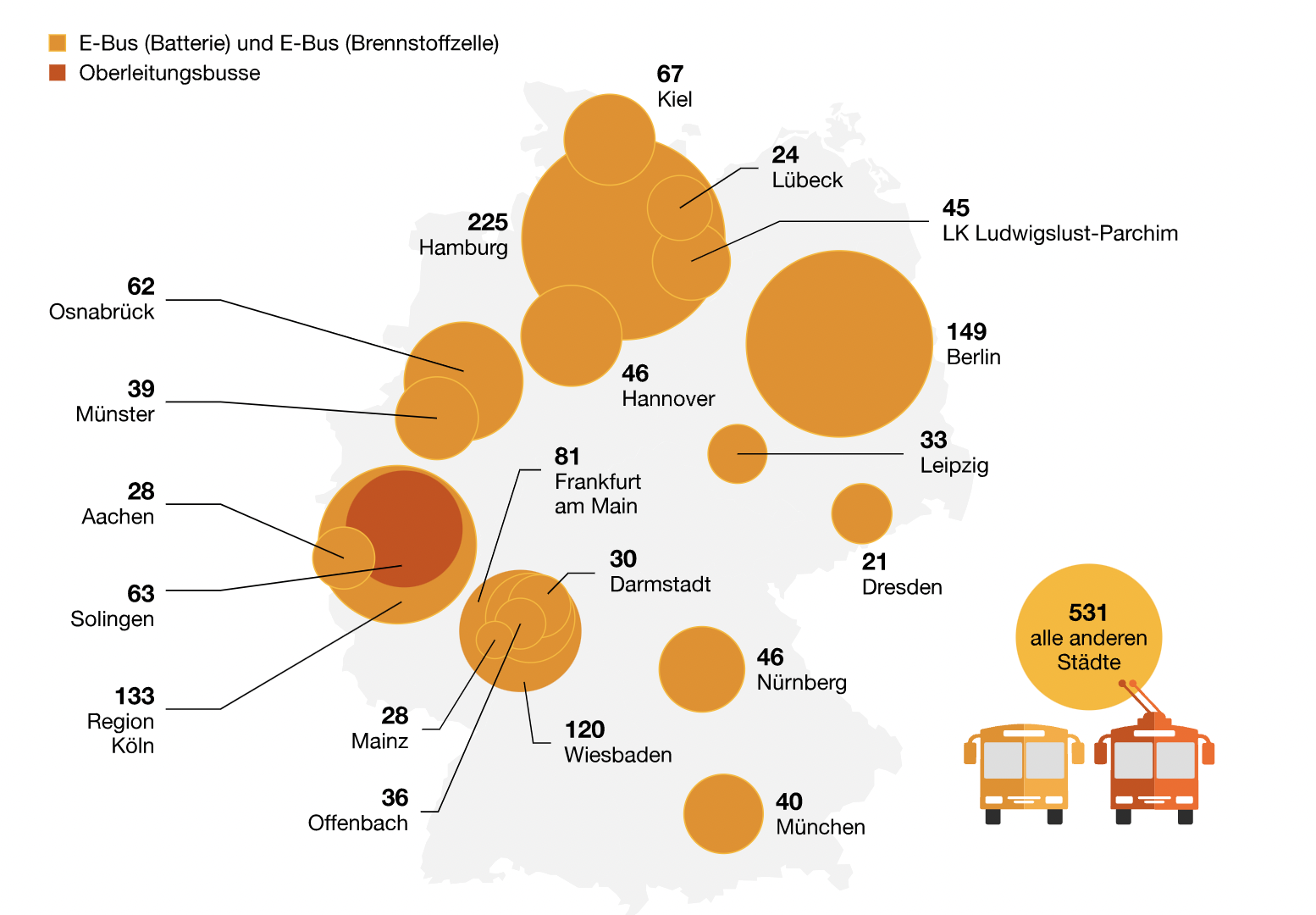
Electric buses also for rural areas
Maximilian Rohs, an expert in the Infrastructure & Mobility at PwC Germany, comments: “The fact that new cities appear in the top 20 ranking every year shows the increasingly wider geographical spread – and I am pleased that with the district of Ludwigslust-Parchim a rural region is also included, because decarbonisation is not just a task for big cities. We are living in the decade of the e-bus and these will soon enrich the image of public transport throughout Germany as pioneers in environmental and climate protection.”
Stronger contribution by federal government needed
Maximilian Rohs adds: “In the end, cities and operators also have no alternative, because the decision to decarbonise public bus transport has been made at the European and national level. The EU’s Clean Vehicles Directive, which was implemented in Germany by the Clean Vehicles Procurement Act, finally includes mandatory minimum quotas for the procurement of zero-emission buses – both for public transport companies and at the level of municipal public transport authorities.”
Still quoting Maximilian Rohs, however, federal government’s contribution should be stronger: “I see it as the duty of the municipalities and transport companies to develop appropriate decarbonisation strategies. But the federal government and the federal states must also make their contribution. This applies in particular to the provision of the necessary financial resources for this far-reaching transformation.” For example, investment support had been useful in an early phase to stimulate the market ramp-up on the industry side; now consumptive support for the operation of electric buses could provide a further boost.




